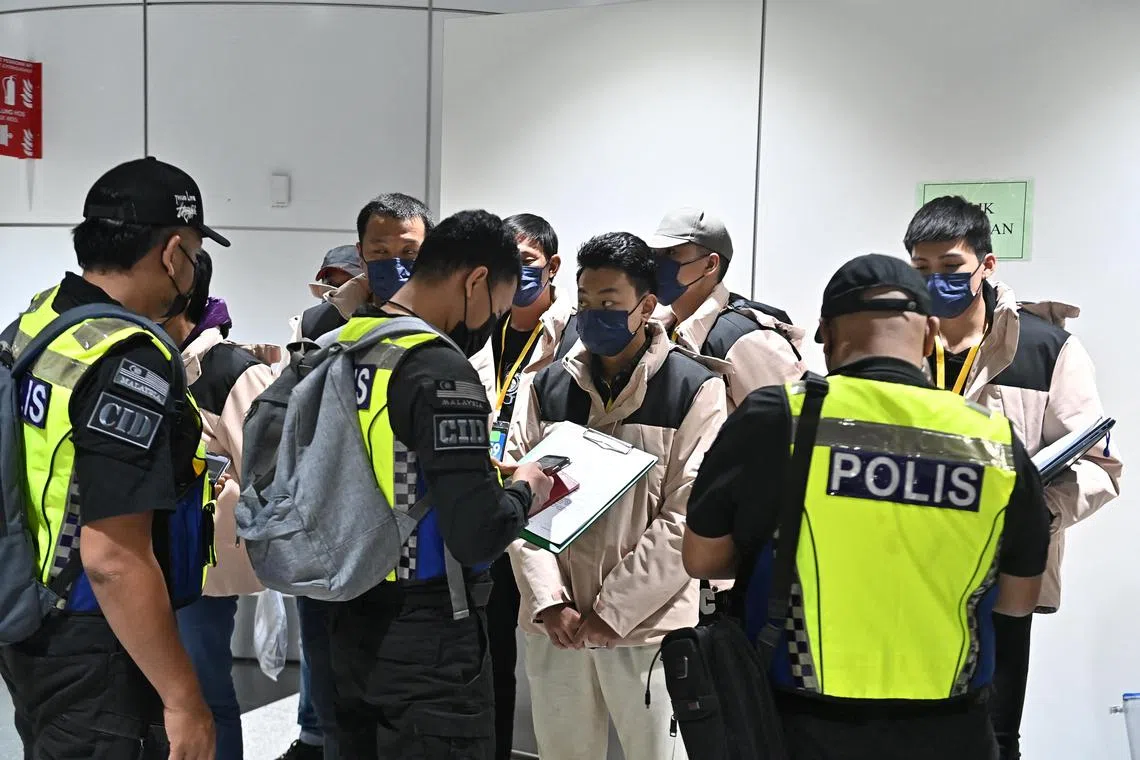Malaysia brings home 121 suspected victims of job scams trapped in Myanmar conflict
Sign up now: Get insights on the biggest stories in Malaysia

The group arrived at Kuala Lumpur International Airport on Dec 1 through a specially arranged flight from Kunming, China.
PHOTO: REUTERS
KUALA LUMPUR - A total of 121 people, mostly Malaysians suspected of being victims of job scams, were evacuated from Myanmar on Dec 1 after being stranded by fighting between the military and rebel groups in the country’s north, Malaysia’s Foreign Ministry said.
The group, which included an Indonesian national, arrived at Kuala Lumpur International Airport at about 3.25am through a specially arranged flight from Kunming, China, it said in a statement.
The evacuation mission was carried out through the Myanmar-China border starting on the morning of Nov 30 with the cooperation and approval of the countries involved, the ministry said.
The mission came amid continuous fighting in northern Myanmar after armed ethnic groups launched an offensive in October. They have seized control of several towns and military outposts.
Malaysia’s Deputy Foreign Minister Mohamad Alamin said those rescued were among 128 people stranded in Laukkaing town, in the northern Shan state, state news agency Bernama reported.
The government is ready to evacuate the remaining seven people there, Bernama quoted him as saying.
Hundreds of Malaysians have been rescued from cybercrime and job scam networks
Victims said they were lured by promises of high-paying jobs and accommodation benefits, but were instead forced to live in compounds and defraud people online. REUTERS


